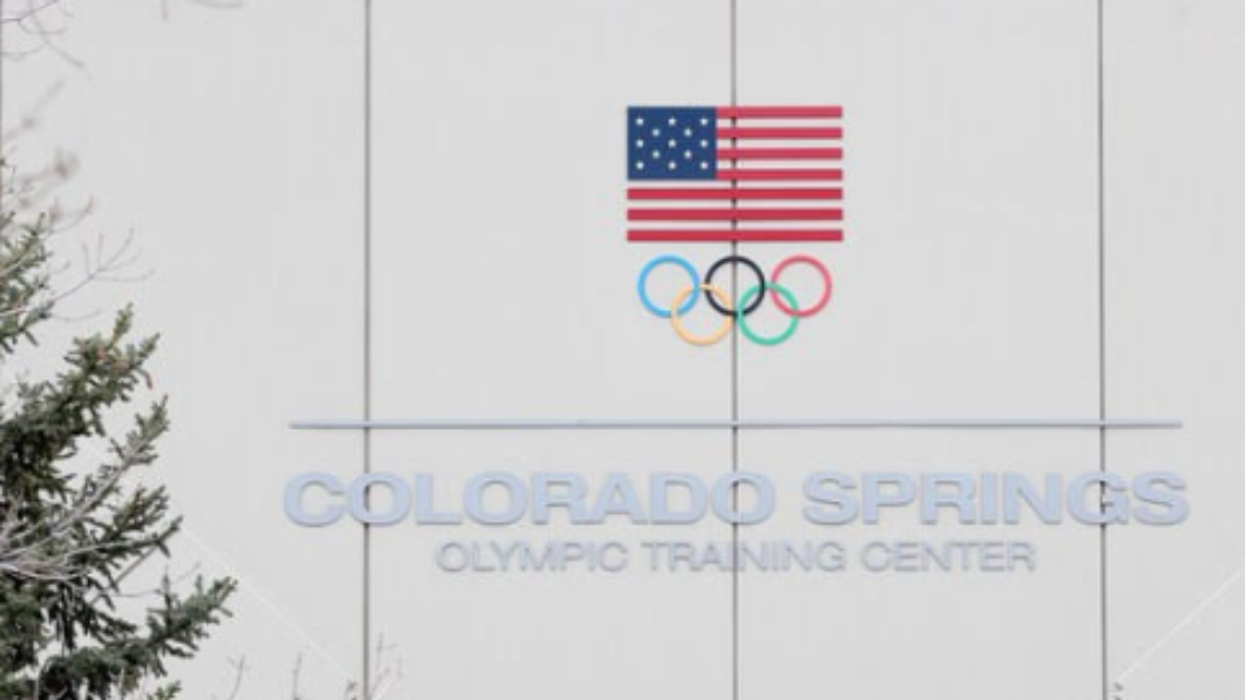Howard “Howie” Gorrell attended 13 of the last 14 Deaflympics since 1969 and is a 2004 recipient of the USADSF Jerald M. Jordan Award, given to those who exhibit leadership and continuous participation toward the goals of the Deaflympics.
In front of more than 600 participants of the Project Play Summit in Colorado Springs on May 17, Co-Chair Dionne Koller said that her newly-formed group, the Commission on the State of U.S. Olympics and Paralympics (CSUSOP), is the 2020’s version of the President’s Commission on Olympic Sports (PCOS), which led to legislation in 1978 called the Amateur Sports Act (ASA).
Subsequently they attended the United States Olympic and Paralympic Museum reception that evening. They roamed four floors by peeping at the exhibits and artifacts dedicated to U.S. Olympic and Paralympic athletes.
Several participants asked the museum guides where the PCOS exhibit was located. The red-faced guides told them there was no exhibit but led them to an artifact display case at the deep end of a jetty off the top floor's main space. They were puzzled after seeing only one sentence with 29 words referring to PCOS.
Twenty-nine words in through the gleaming new $96 million, 60,000 square foot museum! That sentence reads, “The Amateur Sports Act, which originated from recommendations by Gerald Ford’s Presidential Commission on Olympic Sports, was implemented due to conflicts among U.S. amateur sports organizations regarding Olympic representations.”
Earlier, Koller said, “There’s no way to do that without looking at the original act and accounting for the fact that this is not the 1970s anymore.” She paused, “I think it’s really important to have an understanding of history, where we’ve been, where the sport was at the time, but also where we are today in sports.”
This Summit was held sixteen months after the Colorado Springs Gazette article titled, “ On the trail of display errors at the U.S. Olympic and Paralympic Museum, ” which tells what I discovered inside the museum.
The participants mentioned above read the corrected blurb. The original read, “The Amateur Sports Act arose from concerns about conflicts among U.S. amateur sports organizations regarding Olympic representations.”
My commentary tells you that, according to Mike Harrigan, a former PCOS director, the United States Olympic Committee (USOC) had never once held a seminar for its member organizations on the letter, spirit, and intent of the Amateur Sports Act of 1978 (ASA) under which they operated.
While Congress was in the process of legislating another bill to reform the USOC, Harrigan wrote the underlying causes of what went wrong in his 2018 piece for Sports Business Journal:
- The USOC failed to properly oversee national governing bodies as required by the Amateur Sports Act of 1978.
- The USOC failed to understand certain portions of the Act.
- The USOC failed to educate its members and Congress on its contents.
- The USOC's "culture" since the late 1980s ignored everything in its legislative mandate except the goal of winning Olympic medals.
Sadly, the USOC gave Congress an unbelievable false fact about the Deaflympics. On June 24, 2003, Chairman John McCain (R-AZ) of the Senate Committee on Commerce, Science & Transportation presided over testimony regarding the ongoing efforts to reform the USOC. He asked Dr. Harvey W. Schiller, former USOC Executive Director, "Can you explain why the Paralympics should be part of the current USOC structure, and why the Deaflympics remain excluded?"
Schiller testified, "Recognizing that this is a continuing sensitive issue, it was our understanding that, based upon previous competitive opportunities, that the organization that represents the deaf athletes had adequate representation within the organization as it stands." He paused, "The Paralympics itself is the organization that determines which disabled sports are part of it or not, and as you know, there are continuing arguments as to the technical requirements that could allow and have allowed in the past deaf athletes, the hearing impaired, to perform and compete in regular competition, and we didn't see at this particular time any need to specifically identify that group."
Frustrated president of the USA Deaf Sports Federation, Bobbie Beth Scoggins, told ESPN, “I have been to USOC and disabled sports meetings, countless meetings where the Deaflympics was literally ignored, accorded only a nod as might be afforded to a stepchild. We were often isolated from the decision-making and funding process."
In contrast to the 2021 Tokyo Summer Olympics, in which the International Olympic Committee validated 19,664 media accreditations, there were only two journalists at the Summit: an Associated Press reporter and a Gazette reporter. Several newspapers ran the A.P. article on May 18, "Olympic reform panel starts work: 'Opportunity to think big'" I learned that it was the first publication to use the CSUSOP since my commentary on March 28, "Deaflympians battle for sport & awareness." Since then, no media has yet written more about the CSUSOP.
Being a former at-large member of the USOC Handicapped in Sport Committee, I emailed a massive message to over 175 news editors on April 10 to persuade them to cover more about the function of the CSUSOP. Also, I requested them to consider writing about the USA Deaflympians' ongoing plea for Congress to include the Deaflympics in the program of the U.S. Olympics and Paralympic Committee (USOPC). Unfortunately, no paper has accepted my request.
In response to my email, USOPC CEO Sarah Hirshland was afraid I was disappointed in the outcome. However, she encouraged me by writing, "I know the CSUSOP are well aware of the fragmentation and resource challenges that plague sport in our country and I'm hopeful they might find some ideas to help."
Mike Harrigan is correct that the public must help Congress and the USOPC solve their problems. You and your athletic friends must submit your public comment to the Commission on the State of U.S. Olympics and Paralympics by July 31.




















Marco Rubio is the only adult left in the room